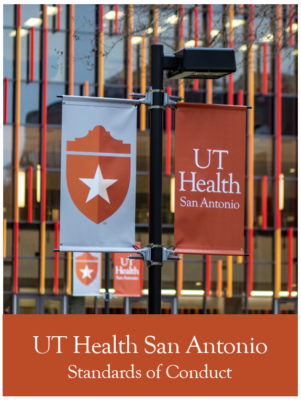Compliance Starts With You!
UT Health San Antonio recognizes that its academic, healthcare, and research operations involve significant legal and ethical responsibilities. Therefore, UT Health San Antonio is committed to full compliance with all applicable laws, rules, and guidelines governing each.
The Standards of Conduct (SOC) is an abbreviated guide to UT Health San Antonio’s expectations and standards of behavior. The purpose of the SOC is to communicate to all UT Health San Antonio faculty, trainees, students, staff, and other workforce members the expectation and understanding that the institution’s compliance program and responsibilities extend beyond the Institutional Compliance and Privacy Office to encompass all who work and study at UT Health San Antonio.
Our culture rests on each person’s integrity, professionalism, understanding of responsibilities, and effort to uphold the highest ethical standards in carrying out UT Health San Antonio’s mission of excellence.
The UT Health San Antonio’s Standards of Conduct is readily available to anyone, at any time, to clarify expectations for all who serve the institution.


